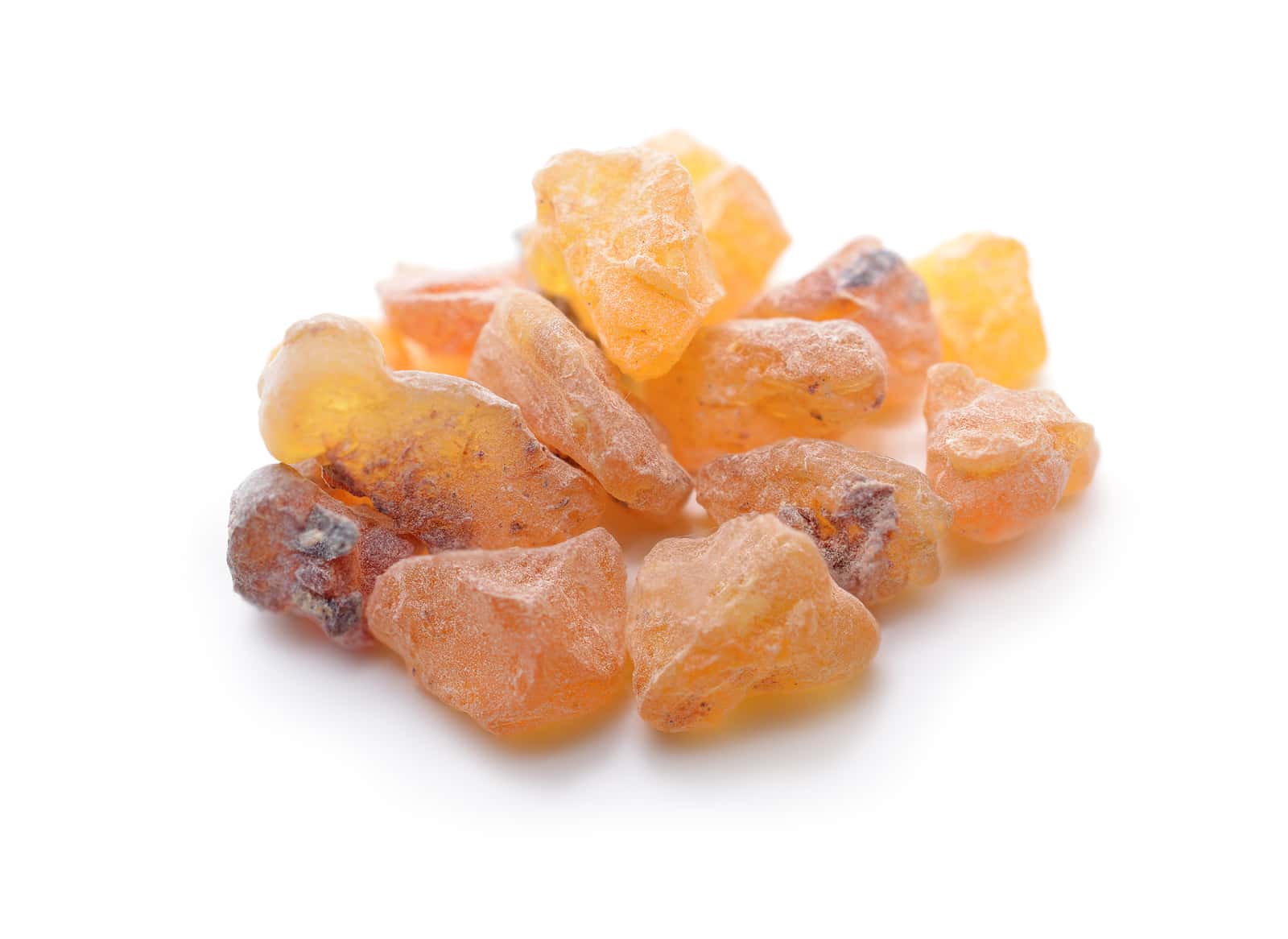
Many Americans who suffer from arthritis pain are caught in a difficult dilemma. Joint pain and stiffness interfere with their ability to to enjoy their usual activities. At the same time, common pain relievers such as ibuprofen or naproxen may cause serious side effects over time. Problems like stomachache, indigestion or diarrhea are widely recognized, but they may be a precursor to stomach ulcers. Could Indian herbal medicines offer relief with fewer side effects?
Using Indian Herbal Medicines for Arthritis Pain:
Q. Many years ago, I fell to the floor while getting out of bed due to arthritic pain in my hips and back. Later I heard an expert on your radio show talk about Indian herbal medicines and suggest boswellia for pain relief. Fortunately, I was able to locate some in my hometown.
After taking it for two weeks, I had notable relief. Over the following four-week period, I had remarkable improvement in my pain. Actually, for about five years I felt no pain from my arthritis.
Over the following four-week period, I had remarkable improvement in my pain. Actually, for about five years I felt no pain from my arthritis.
It is now almost twenty-five years later, and my arthritis pain is a lot worse. However, I continue to take boswellia together with curcumin and ashwagandha to control it.
Controlling Pain With Botanical Products:
A. Thank you for your testimonial. There are some studies that support the use of all three of these Indian herbal medicines as anti-inflammatory agents. In one placebo-controlled trial of an Ayurvedic therapy combining these herbs with ginger, people with knee osteoarthritis had significantly less pain after four and eight months (Journal of Clinical Rheumatology, Oct. 2004). Participants taking the botanicals and those on placebo reported side effects at the same rate.
In another study, 440 patients took the nonsteroidal anti-inflammatory drug celecoxib, glucosamine sulphate or one of two Ayurvedic formulas (Rheumatology, Aug. 2013). The formulas contained ginger and boswellia but not ashwagandha or curcumin. Over six months, the Indian herbal medicines provided pain relief equal to that from celecoxib or glucosamine. However, some volunteers did develop elevated liver enzymes, a side effect that could prove troublesome.
A recent meta-analysis found that boswellia seems to be a safe and effective treatment for arthritis pain (BMC Complementary Medicine and Therapies, July 17, 2020). The authors recommend people try it for at least four weeks to determine if it is helpful.
Learn More:
There is more information about these Ayurvedic medicines and other nondrug approaches in our eGuide to Alternatives for Arthritis. In this online resource, you will also find information about the pros and cons of various medications used to treat joint pain. For people who prefer their information in print, we over it as a small book, Graedons’ Guide to Alternatives for Arthritis.
Downsides of Indian Herbal Medicines:
These herbs may not be appropriate for everyone. Anticoagulant medicines might interact with ginger or turmeric to increase the risk of bleeding. Some people may develop digestive upset while taking turmeric, boswellia or ashwagandha. We have also heard from readers who get a rash from turmeric. We advise keeping your primary health care provider informed on what you take so that they can monitor your liver enzymes and mind your general health.
Citations
- Chopra A et al, "A 32-week randomized, placebo-controlled clinical evaluation of RA-11, an Ayurvedic drug, on osteoarthritis of the knees." Journal of Clinical Rheumatology, Oct. 2004. DOI: 10.1097/01.rhu.0000138087.47382.6d
- Chopra A et al, "Ayurvedic medicine offers a good alternative to glucosamine and celecoxib in the treatment of symptomatic knee osteoarthritis: a randomized, double-blind, controlled equivalence drug trial." Rheumatology, Aug. 2013. DOI: 10.1093/rheumatology/kes414
- Yu G et al, "Effectiveness of Boswellia and Boswellia extract for osteoarthritis patients: a systematic review and meta-analysis." BMC Complementary Medicine and Therapies, July 17, 2020. DOI: 10.1186/s12906-020-02985-6

